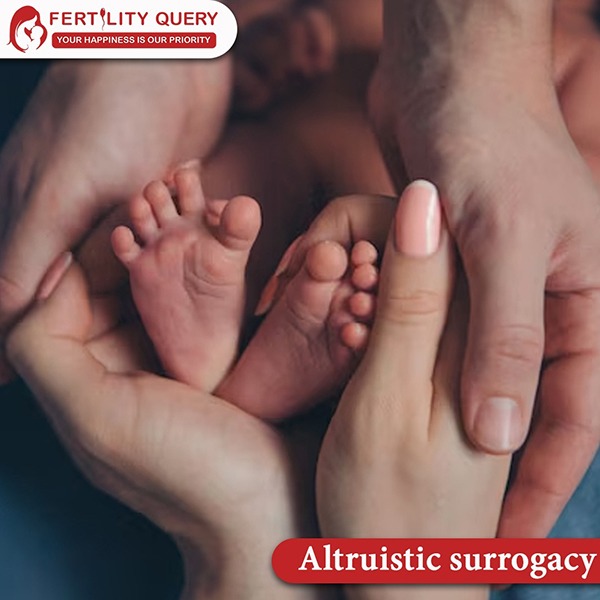
Best Altruistic Surrogacy Centre in Visakhapatnam
Best Altruistic Surrogacy Centre in Visakhapatnam, is a fertility clinic that offers a range of assisted reproductive technologies (ART) to help individuals and couples achieve their dream of parenthood. One of the options that the clinic offers is altruistic surrogacy, which involves a woman carrying a child for another person or couple without any financial compensation.
Altruistic Surrogacy:
Altruistic surrogacy is a type of surrogacy in which the surrogate mother agrees to carry a child for another person or couple without receiving any monetary compensation. The surrogate mother may be a friend or family member of the intended parents, or she may be someone who has volunteered to be a surrogate through an agency or clinic. In contrast to commercial surrogacy, in which the surrogate is paid a fee for her services, altruistic surrogacy is often seen as a more ethical and compassionate option for couples who are struggling with infertility.
The process of altruistic surrogacy involves several steps. First, the intended parents and the surrogate mother must meet with a fertility specialist to discuss the medical and legal aspects of the arrangement. This may include counselling to ensure that everyone understands the emotional and psychological implications of surrogacy. Once all parties have agreed to move forward, the surrogate mother will undergo a medical evaluation to ensure that she is healthy enough to carry a child. This may include blood tests, ultrasounds, and other diagnostic procedures.
If the medical evaluation is successful, the surrogate mother will then undergo a series of fertility treatments to prepare her body for pregnancy. This may include hormonal injections to stimulate ovulation and the transfer of one or more embryos into her uterus. The intended parents will typically provide the embryos, which may be created through in vitro fertilization (IVF) using the eggs and sperm of the intended parents or donors.
During the pregnancy, the surrogate mother will receive regular medical care to monitor the health of the baby and ensure that the pregnancy is progressing normally. The intended parents may also be involved in the process, attending prenatal appointments and providing emotional support to the surrogate mother.
Legal Considerations:
Altruistic surrogacy is legal in India, but there are strict regulations governing the process. The intended parents must be Indian citizens, and the surrogate mother must be a close relative or friend of the intended parents. The arrangement must also be documented in a legal contract, which outlines the rights and responsibilities of all parties involved. The contract must be signed by all parties and registered with the local district magistrate.
In addition, the surrogate mother must have her own independent legal counsel to ensure that her rights and interests are protected. This is especially important in cases where the intended parents are unable to care for the child due to unforeseen circumstances, such as divorce or death. The surrogate mother must also be allowed to make decisions about her own health and the health of the baby, including the choice to terminate the pregnancy if necessary.
Conclusion:
Altruistic surrogacy can be a compassionate and ethical option for couples who are struggling with infertility. By choosing to work with a surrogate mother who is willing to carry a child without financial compensation, intended parents can create a meaningful and supportive relationship that can last a lifetime. However, it is important to work with a reputable fertility clinic or agency to ensure that all aspects of the process are handled in a legal and ethical manner. With the right support and guidance, altruistic surrogacy can be a fulfilling and rewarding way to build a family.



